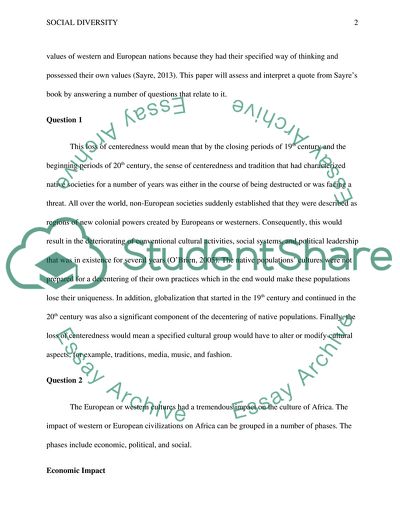Cite this document
(Decentering of African Culture by European and Western Nations Assignment, n.d.)
Decentering of African Culture by European and Western Nations Assignment. https://studentshare.org/culture/1797439-social-diversity
Decentering of African Culture by European and Western Nations Assignment. https://studentshare.org/culture/1797439-social-diversity
(Decentering of African Culture by European and Western Nations Assignment)
Decentering of African Culture by European and Western Nations Assignment. https://studentshare.org/culture/1797439-social-diversity.
Decentering of African Culture by European and Western Nations Assignment. https://studentshare.org/culture/1797439-social-diversity.
“Decentering of African Culture by European and Western Nations Assignment”. https://studentshare.org/culture/1797439-social-diversity.


